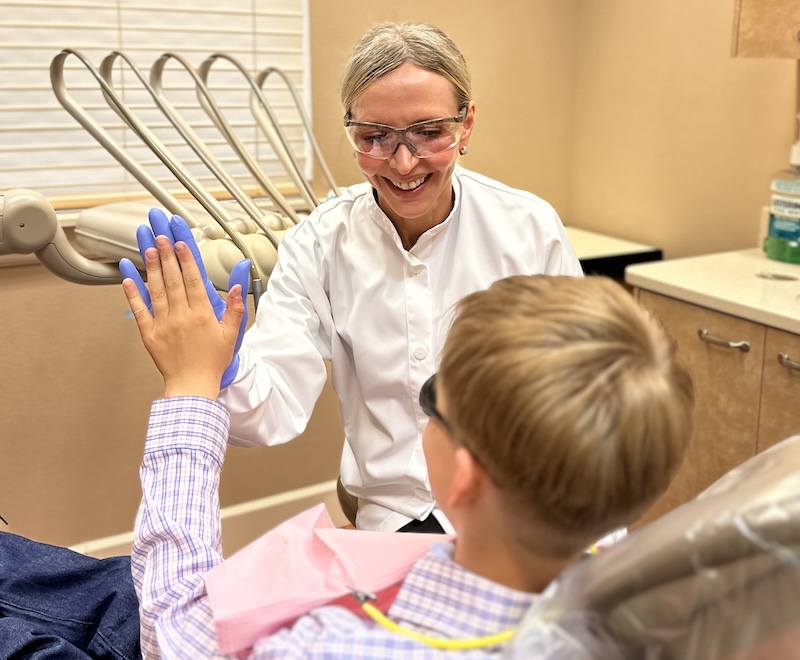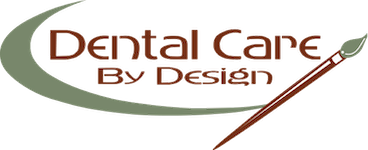Hello, I'm Dr. Elizabeth Manchester here at Dental Care by Design. We get a lot of questions about dental checkups. Today, I'm going to answer some of the most common questions on this topic to give you a better understanding of what happens during the dental appointment.
Why do I need regular dental checkups?
Regular dental checkups prevent bad dental conditions like decay, gum bone disease, dental infections, and soft tissue pathologies in the mouth from going undetected. For example, if you have a decayed tooth that has been undetected for a long time, it can develop into a bacterial infection of the nerve inside the tooth. A nerve infection can lead to severe toothache and possible tooth loss. This can be prevented by identifying a smaller cavity in your tooth and fixing it before it worsens. During dental checkups, different dental and mouth pathologies are detected, and early treatment can save teeth and, in some cases, patients' lives. Some types of cancer develop in the mouth and throat and can be diagnosed during dental checkups.
What is included in a dental checkup at Dental Care by Design?
At our Dental Care by Design office, you will often get a dental checkup during your cleaning appointment, saving you time from coming for a checkup on another day. We also take some X-rays of your teeth and the bone every 12 to 18 months to ensure that the radiographic diagnosis is also used. Visual and X-ray diagnosis complement each other and cannot be completed without one another. They are a necessary part of the dental checkup and early detection and prevention of dental-related diseases.
What is a dentist looking for during the dental checkup?
Our dentist and hygienist will look for the overall condition of your mouth, such as the amount of plaque around your teeth, signs of decay and tooth infection, signs of soft tissue pathologies, early signs of bone loss and gum inflammation, or how stable our current bone disease is. Our goal is to be your friendly guide to your optimum dental and mouth health. We will not shame you or hurt you, but will guide you with compassion and respect to build good habits that will help you keep your teeth and gums healthy for the rest of your life.

How often should I get a dental checkup?
A dental checkup usually happens when you come for your dental cleaning appointment. On average, it will occur every six months. If you have a high decay risk, gum and bone loss disease, and other oral pathologies, it's very important to get checked every six months or twice a year. Some of our patients come to us every 12 months for dental checkups and cleanings. Twelve months can be acceptable when you have very good home care and healthy mouth conditions.
Can dental checkups prevent oral health issues?
Yes, dental checkups can prevent oral health issues such as tooth decay, gum and bone disease, dental infection, and inflammation. By identifying problems in the mouth, such as poor home care, accumulation of plaque, dry mouth syndrome, and other underlying conditions, your dental provider will notify you of such problems. The following action would be some changes in home care, dietary changes, or using additional dental remedies to prevent deeper problems.
How long does the dental checkup take?
Dental checkups take a few minutes. When combined with dental cleaning and x-rays, it takes about a 1-hour appointment and is done every six months.
Do dental checkups hurt?
No, dental checkups should not hurt you. We will not press or push on your teeth. Our dentist uses a light stream of air to improve the visibility of the teeth and gums, making your checkups very comfortable.
What is the best way to schedule a dental checkup?
The best way to schedule a checkup is to call us and ask for a checkup appointment. Our front office personnel, who will be with you on the phone, will ask if you want the checkup to be with the cleaning or by itself. You can choose either option, and we will definitely meet your needs.
I hope I've been able to answer some of your questions on dental checkups. But if you have additional questions or if you're ready to take some action, please give us a call at (360) 800-2372. We are here to help.

